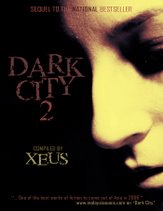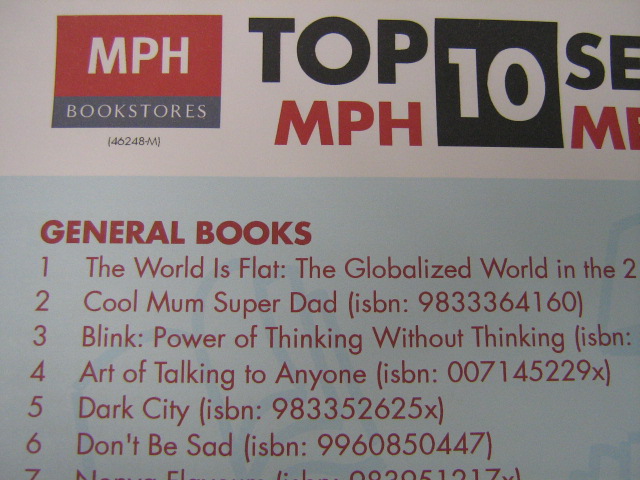Building characters in an extraordinary setting
I thought this was really interesting:
http://io9.com/5065556/secrets-of-great-characters-according-to-6-science-fiction-authors
http://io9.com/5065556/secrets-of-great-characters-according-to-6-science-fiction-authors
Amazing stories need great characters. And when you're writing a story set in a futuristic or fantastical world, it's more important than ever for readers to be able to relate to your characters. It's also harder than ever, because your characters' lives and experiences will be totally different than your readers'. How do you make people identify with someone who lives in the future, or on another planet? How can your main character stand out, against a bizarre and colorful backdrop? We asked six great science fiction authors for their advice.
1. Get to know them as individuals, rather than types. If your characters are cut off from all the present-day cultural references, like "lawyer who went to Harvard," then it's even more important to think of them as individuals, says Elizabeth Bear, Campbell- and Hugo-winning author of Carnival and Undertow. "Try very hard to know them as people," she urges. "That goes for any setting, past or present or future — or alternate reality."
In particular, you should think, "'This is a person who happens to have the following traits, and all that they imply,' rather than 'this is a nuclear physicist who grew up in Iowa.'"
2. Try making your characters scientists. Or at least, have them be obsessed with stuff that's relavant to your storyline, advises Kim Stanley Robinson, Hugo- and Nebula-winning author of the Mars trilogy and the Science In The Capital series. Having scientists as your characters lets you "explore the setting and the character at once." And it helps if your characters obsess about the mysteries and explanations in your story. They can also be obsessed with a planet, spaceship, new procedure or alien.
3. Base them on people you know. The most realistic characters are often based closely on your friends or people you've met, says Rudy Rucker, Philip K. Dick-winning author of the -Ware novels and Postsingular. That goes double for your aliens, A.I.s and robots, he adds. It's always better to copy your friends than to lift from "received ideas about how SF characters might behave. Who wants to see yet another a humorless talking head with a BBC accent? The absolute worst thing in Matrix III was when Keanu gets to the virtual office of the Big Computer Mind, and he meets, like, a tweedy professor with a white beard. Ugh! At the very least it should have been a fat hacker in a T-shirt, preferably high on pineal extract." Also: to make your characters stand out, try having them say quirky, unexpected things. "Forget your Star Trek memories, and remember your wild and crazy friends — the ones who say things that Make No Sense," Rucker advises.
4. Give them a thought-out world. The more carefully thought out the world you're placing your characters into, the more we'll be able to believe that they live there, says Tobias Buckell, author of Sly Mongoose. And that also makes it easier to "contrast them against this imaginary place."
Figure out what they love, and what they fear. Try to find what drives your characters, including what they want and need, Bear urges. And understand what traumatizes them. "I tell people I like to know what they'd want on their tombstone: that seems to give me a really good handle on who they are."
She adds:
Characters we can relate to have fears and damage, but moreover, for me they have to be devoted to something — an ideal, a person, whatever. Even villains become much more sympathetic when we're introduced to whatever it is that they love.
Kage Baker, author of the Company novels, agrees: "It isn't the way a person relates to his hovercar that makes him memorable; it's what's going on in his heart." No matter what planet or time you're living in, there will be "certain constants in human existence: struggle against poverty, rebellion against authority, love and desire, loneliness, curiosity. Any reader can relate to those." Make sure your character has loves and hatreds that readers can see themselves in, and the rest will take care of itself.
5. Don't aim for larger-than-life — and overshoot. One pitfall with science fiction characters is that authors sometimes make their characters "bigger than life, or archetypal" to let them compete with the big, brash colorful worlds they live in. A common mistake is veering past archetypal, all the way into "over the top, or maybe somewhat cliche." If you do try for archetypal characters, think of the classics from all genres, like Sherlock Holmes' quirky genius or Captain Ahab's drive.
6. Don't obsess too much about setting and toys. If you spend pages and pages on dense descriptions of your settings and how exactly your hovercar works, you're distracting the reader from your characters, says Baker.
It's enough to say "He climbed into his hovercar" and your reader will get the idea. You don't need to give a geography lesson: "They were sitting in the courtyard drinking fire-palm wine" or "She trudged back from the well, balancing her water jar" or "They looked out across the desert and saw the yellow mountains of Califia before them" all give brief, intense impressions of a place, without stopping the narrative in its tracks or drawing focus from the main character.
Find out who's hurting. If your story involves a new situation or technological breakthrough, figure out who suffers as a result — maybe that should be your main character, says Robinson, quoting from Damon Knight (who was quoting James Blish in turn.)
7. Keep your characters grounded. The stranger the setting, the more ordinary your characters should be, says Terry Bisson, Hugo- and Nebula-winning author of Bears Discover Fire. "For example, in my most recent story, the narrator 'had a job and an apartment, but that was all.' The story wasn't about the setting but about the character."
Your characters should be "totally convinced they live in the present, rather than the future. Because, of course, it IS the present to them," says David J. Williams, author of The Mirrored Heavens. Make sure your world, and your characters, both have a believable past, that anchors their present. "As Gibson said, the future's already here, it's just unevenly distributed. Same is true for the past: it's always with us, but sometimes beneath the surface. How one handles that is the key to character."



1 comment:
I like that characters should or can be based on your friends who say things that Make No Sense. Ha ha.
Reminds us of a few people we know?
Post a Comment